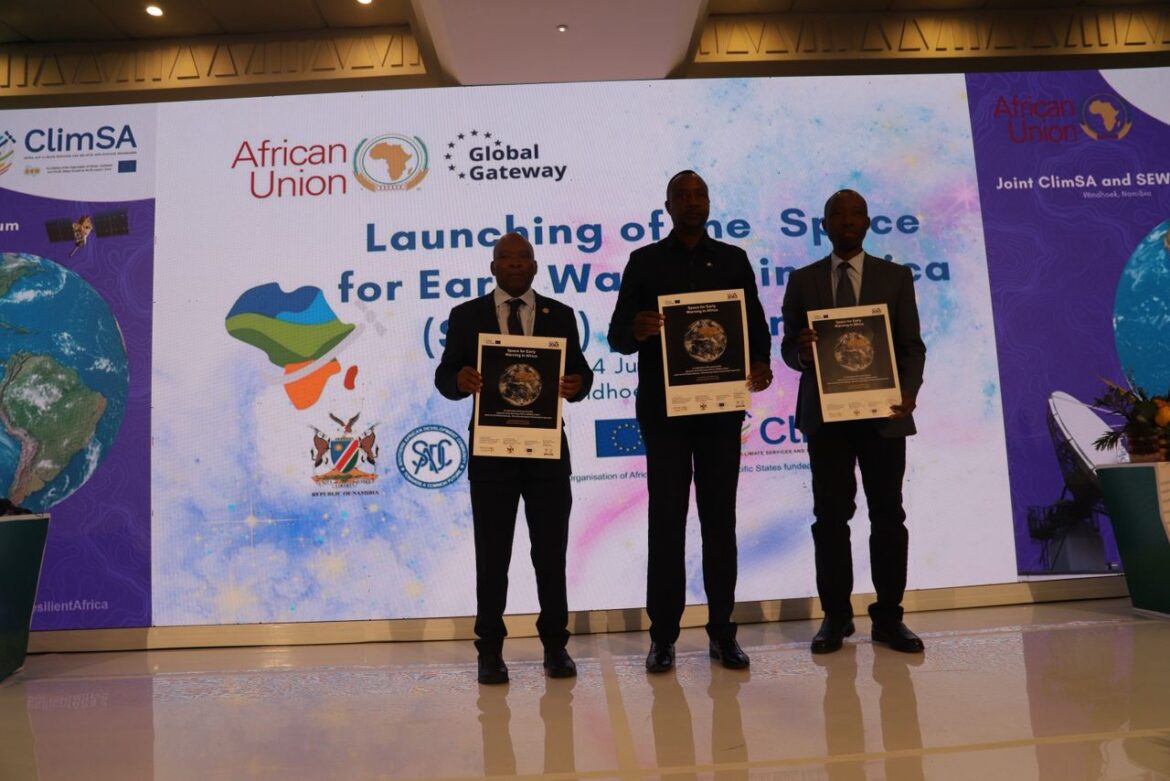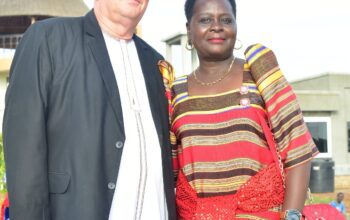The African Union has launched the Space for Early Warning in Africa (SEWA) project to improve access to meteorological data.
This initiative is part of the Africa-EU Space Partnership Programme and aims to enhance disaster preparedness and response across the continent by utilizing space-based technologies and Earth observation data.
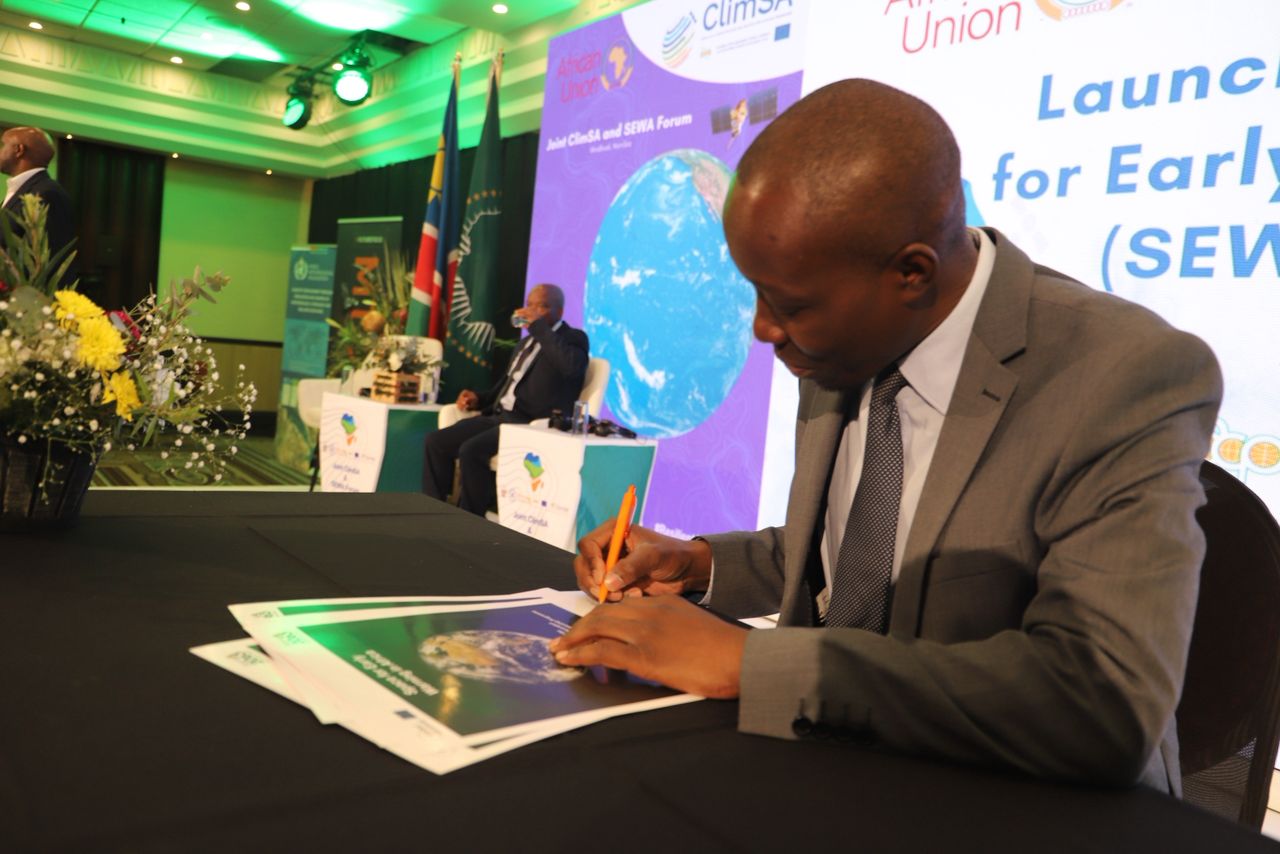
At the project’s launch in Windhoek, Namibia, Moses Vilakati, the Commissioner for Agriculture, Rural Development, Blue Economy, and Sustainable Environment (ARBE), urged the media in Africa to engage more actively in making complex information accessible to everyone.
He stated, “There is a need to build the capacity of the media to translate information for the entire population,” emphasizing that “people with disabilities need access to information, which should be packaged in a language that is easily understood by all.”
Vilakati also called on member states to allocate budgets for capacity building in generating meteorological data and delivering usable weather and climate forecasts.
He noted, “Given the current geopolitical self-centered politics, Africa needs to plan for investments in meteorological infrastructure that provides timely data.”
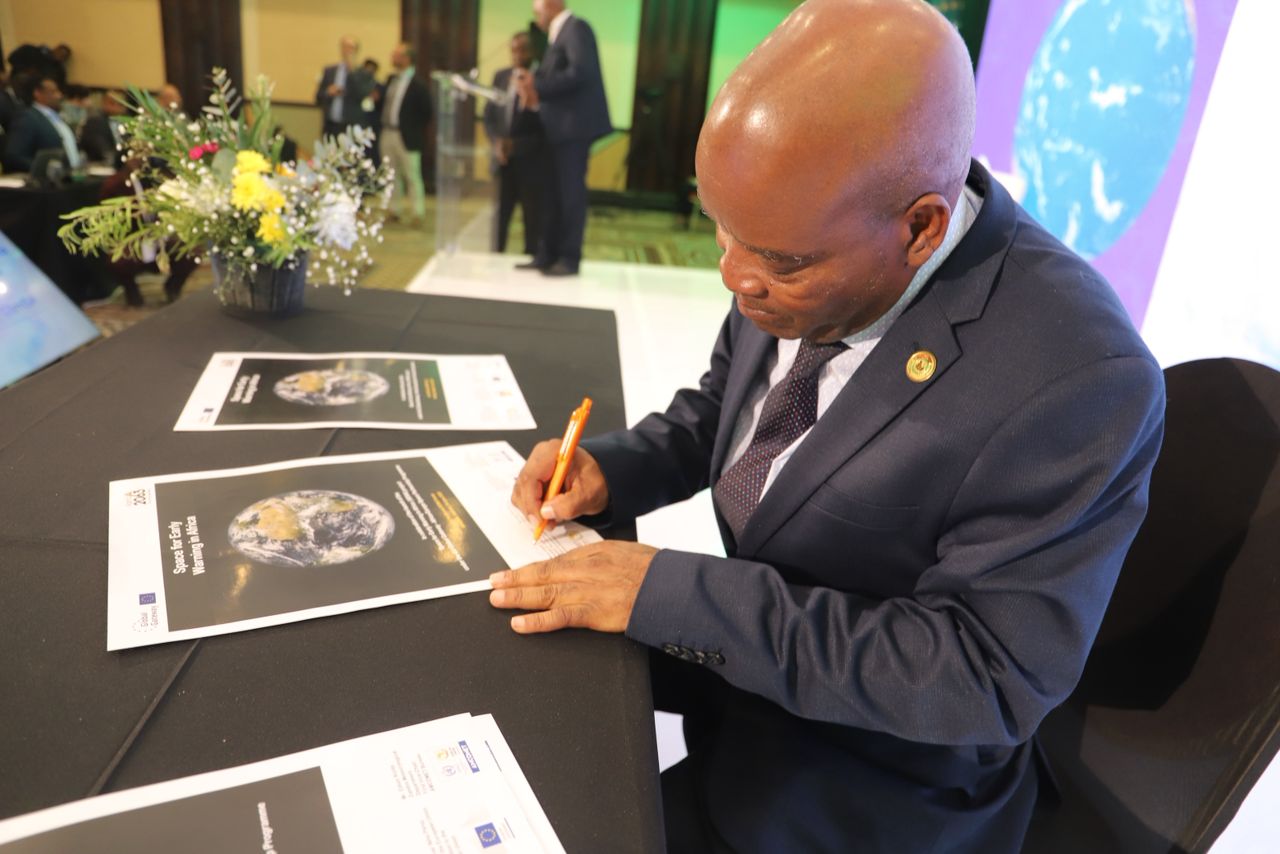
Jonas Sheelongo, the Deputy Executive Director in the Ministry of Works and Transport, highlighted the importance of collaboration between researchers and academia in converting meteorological data into practical information.
He remarked that “timely forecasts that are well-packaged can enhance response efforts and improve the usage of meteorological information for proactive actions.”
Sheelongo pointed out that investing in disaster preparedness is more cost-effective than addressing the consequences of adverse weather patterns that can lead to disasters impacting large populations.
Edson Nkonde, the Director of Meteorological Services in Zambia, emphasized the value of co-producing weather forecasts tailored to the specific needs of various sectors.
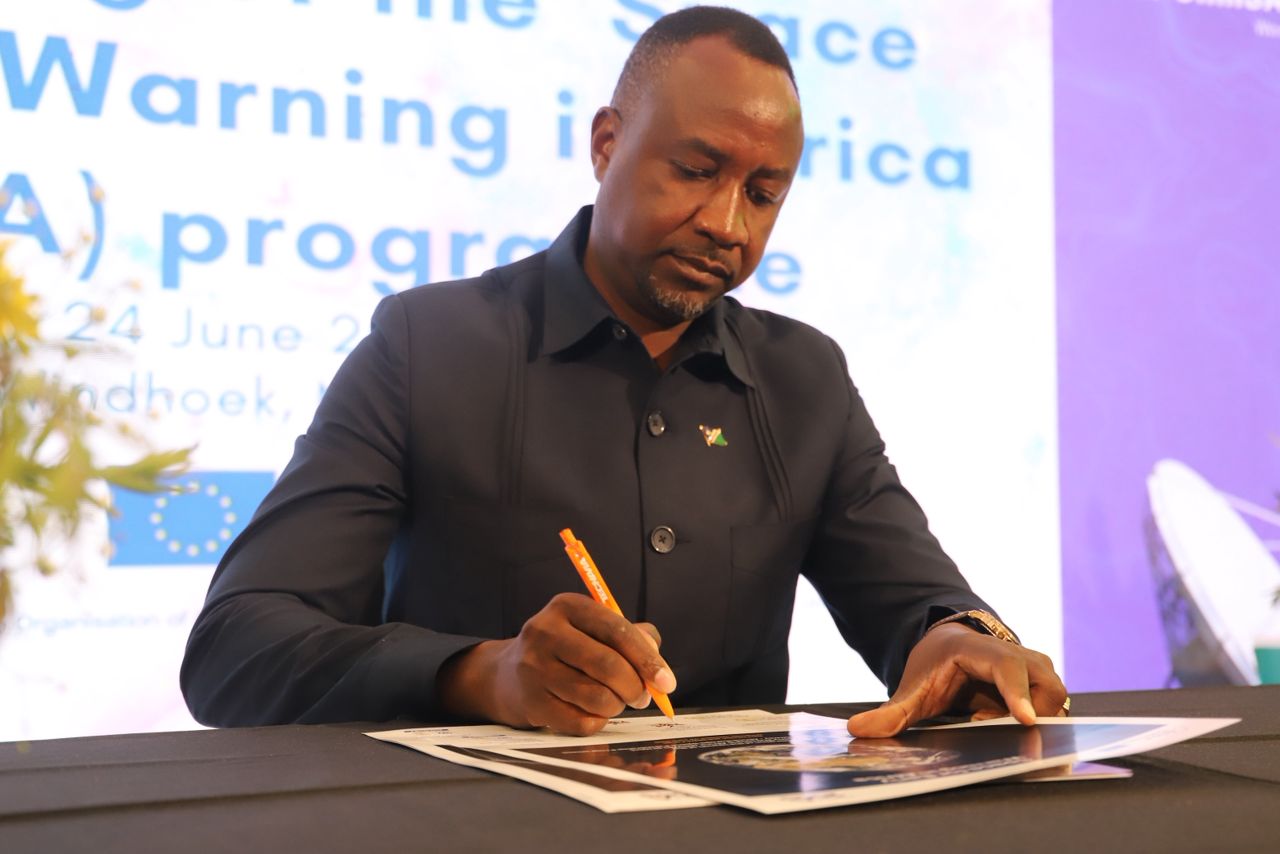
He stated, “Providing information free from scientific jargon enables communities to act on it, helping to save lives and livelihoods,” he added as the Permanent Representative of Zambia to the World Meteorological Organization (WMO).
The Abidjan Declaration, signed in 2018, focused on leveraging the Meteosat Third Generation (MTG) satellite system to improve weather and climate services in Africa. It emphasized the need to strengthen “African capacities to utilize data from the new generation of satellites for operational services and early warning systems,” which includes establishing and operationalizing the African Meteorological Application Facility (AMSAF).
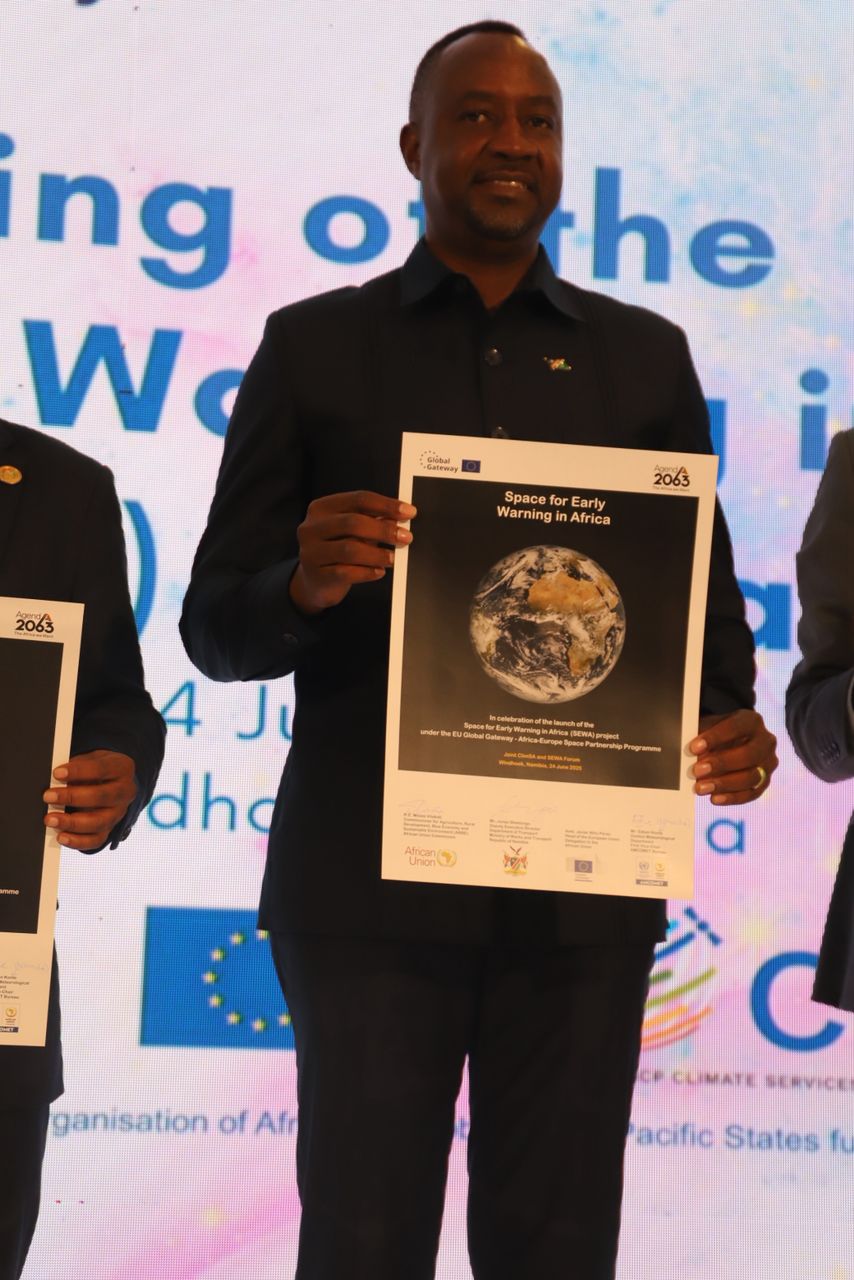
The SEWA project aims to enhance the resilience of member states by improving access to and use of Earth observation (EO) meteorological data and weather services.
It seeks to strengthen human capacities, knowledge, and community involvement in the early warning value chain with a focus on space-based data and technologies.
Furthermore, the project aims to enhance coordination with institutional frameworks for hazardous weather and climate early warning, promote knowledge sharing across regions, and improve Impact-Based Forecasting capabilities at continental, regional, and national levels.


